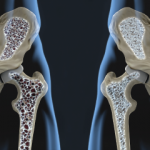Precision medicine is a hot topic, but what does it mean for clinical practice in rheumatology? This year’s Annual Meeting ARP Pre-Meeting Course will explore precision medicine’s implications for biomarkers, pharmacogenomics, psychosocial aspects of care and more…
Healthcare Professionals Can Tap the ARP for Assistance
The ARP has a lot to offer members, including training and professional development, patient resources and volunteer match opportunities.
Practical, Diverse Knowledge: A Preview of 2019’s ARP Sessions
From insights into mentoring and statistics to integrating virtual reality into a patient’s rehab—the educational sessions offered during the ACR/ARP Annual Meeting will be practical, yet innovative and inspiring…

How Rheumatologists Can Better Partner with Social Workers
When Liz Morasso, LCSW, facilitates a Families Living with Rheumatic Diseases support group at Children’s Hospital Los Angeles, she empathizes with the struggles and challenges of her young patients. Ms. Morasso was only 16 years old when she was diagnosed with both systemic lupus erythematosus (SLE) and rheumatoid arthritis (RA). She knows all too well…

All in One Setting: Integrated Team-Based Care for Autoimmunity
Rheumatologists, behavioral specialists, pharmacists and other healthcare professionals are working in the Autoimmunity Institute at Allegheny Health Network, Pittsburgh, to care for the whole patient…

ARP Collaborates with EULAR’s Health Professionals in Rheumatology
The Association of Rheumatology Professionals (ARP) and European League Against Rheumatism Health Professionals in Rheumatology (EULAR HPR) are, to a great extent, working toward addressing the same long-term goals and challenges. Despite differences in healthcare services, culture, organization and economical aspects across the Atlantic Ocean, we can help each other overcome these challenges and learn…

What Physical & Occupational Therapists Wish Rheumatologists Knew
Kim Steinbarger, PT, MHS, knows how physical and occupational therapy can make a difference for patients with rheumatic diseases. Ms. Steinbarger was just two years into her career as a physical therapist (PT) when she was diagnosed with rheumatoid arthritis (RA) in 1991. “I’ve seen how regular exercise serves as an important tool in managing…

A Bridge Between Patients & Rheumatologists: What Social Workers Want Rheumatologists to Know
An integral part of the rheumatology care team, social workers can address specific issues related to a patient’s overall wellbeing. Here are some insights into how rheumatologists can better partner with social workers as part of the interdisciplinary team to ensure better patient outcomes…

What Pharmacists Want Rheumatologists to Know
Involving pharmacists in the management of chronic diseases benefits patients, says Wendy Ramey, BSPharm, RPh, CSP, a clinical pharmacy specialist in rheumatology at the University of Kentucky, Lexington. She knows this personally. As someone with rheumatoid arthritis (RA), Ms. Ramey knows pharmacists can play an important role in patient education and encouraging adherence to medications….

Osteoporosis Experts Discuss Bisphosphonates, Chronic Kidney Disease
CHICAGO—The osteoporosis session at the 2018 ACR/ARHP Annual Meeting opened with a discussion by Kenneth Saag, MD, MSc, professor of medicine at the University of Alabama, Birmingham, in which he highlighted adverse events associated with osteoporosis medications. Dr. Saag began his presentation by emphasizing that, above all, the audience should keep in mind that the…
- « Previous Page
- 1
- …
- 3
- 4
- 5
- 6
- 7
- …
- 28
- Next Page »